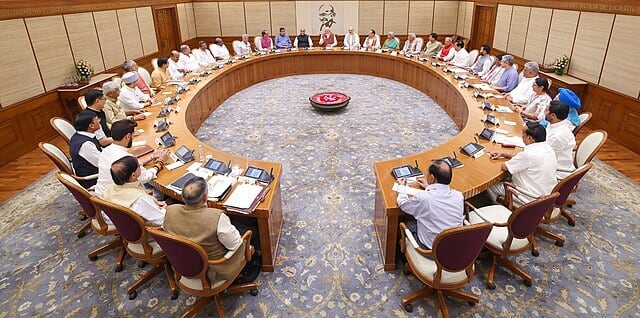Cabinet okays ITI upgradation scheme, setting up of 5 centres of excellence for skilling
Mrunal Pandharinath Jadhav | May 7, 2025 | 07:10 PM IST | 2 mins read
Union Cabinet, led by PM Modi approves ₹60,000 crore scheme to upgrade 1,000 government ITIs and set up five NCOE.

NEW DELHI: In a landmark move to reshape the landscape of vocational education in the country, the Cabinet, chaired by Prime Minister Narendra Modi, has approved the national scheme for ITI upgradation and the establishment of five national centres of excellence for skilling. The scheme will be rolled out as a centrally sponsored initiative with an ambitious investment of Rs 60,000 crore.
Announced under Budget 2024–25 and 2025–26, the scheme aims to breathe new life into over 1,000 government Industrial Training Institutes (ITIs), transforming them into aspirational, industry-aligned skill hubs. The financial outlay includes ₹30,000 crore from the Centre, ₹20,000 crore from states, and ₹10,000 crore from the industry. Global players like the Asian Development Bank and the World Bank will co-finance 50% of the central share—adding a significant push to India's skilling mission.
The scheme will focus on upgradation of 1,000 government ITIs in hub and spoke arrangement with industry-aligned revamped trades (courses) and capacity augmentation of five national skill training institutes (NSTIs), including setting up of five national centres of excellence for skilling in these institutes.
The scheme aims to position existing ITIs as government-owned, industry-managed aspirational institutes of skills, in collaboration with state governments and industry. Over a five-year period, 20 lakh youth will be skilled through courses that address the human capital needs of industries. The scheme will focus on ensuring alignment between local workforce supply and industry demand, thereby facilitating industries, including MSMEs, in accessing employment-ready workers.
The financial assistance provided under various schemes in the past was suboptimal to meet the full upgradation needs of ITIs, particularly in addressing growing investment requirements for infrastructure upkeep, capacity expansion, and the introduction of capital-intensive, new-age trades. To overcome this, a need-based investment provision has been kept under the proposed scheme, allowing flexibility in fund allocation based on the specific infrastructure, capacity, and trade-related requirements of each institution.
ITI upgradation
For the first time, the scheme seeks to establish deep industry connections in planning and management of ITI upgradation on a sustained basis. The scheme will adopt an industry-led special purpose vehicle (SPV) model for an outcome-driven implementation strategy, making it distinct from previous efforts to improve the ITI ecosystem.
Under the scheme, infrastructure upgradation for improved training of trainers (ToT) facilities will be undertaken in five national skill training institutes (NSTIs), namely Bhubaneswar, Chennai, Hyderabad, Kanpur, and Ludhiana. Additionally, pre-service and in-service training will be provided to 50,000 trainers.
Aligned with Viksit Bharat vision
By addressing long-standing challenges in infrastructure, course relevance, employability, and the perception of vocational training, the scheme aims to position ITIs at the forefront to cater to skilled manpower requirements, aligned to the nation’s journey to becoming a global manufacturing and innovation powerhouse. It will create a pipeline of skilled workers aligned with industry demand, thereby addressing skill shortages in high-growth sectors such as electronics, automotive, and renewable energy.
In sum, the proposed scheme aligns with the PM Modi’s vision of Viksit Bharat, with skilling as a key enabler to meet both current and future industry needs.
Follow us for the latest education news on colleges and universities, admission, courses, exams, research, education policies, study abroad and more..
To get in touch, write to us at news@careers360.com.